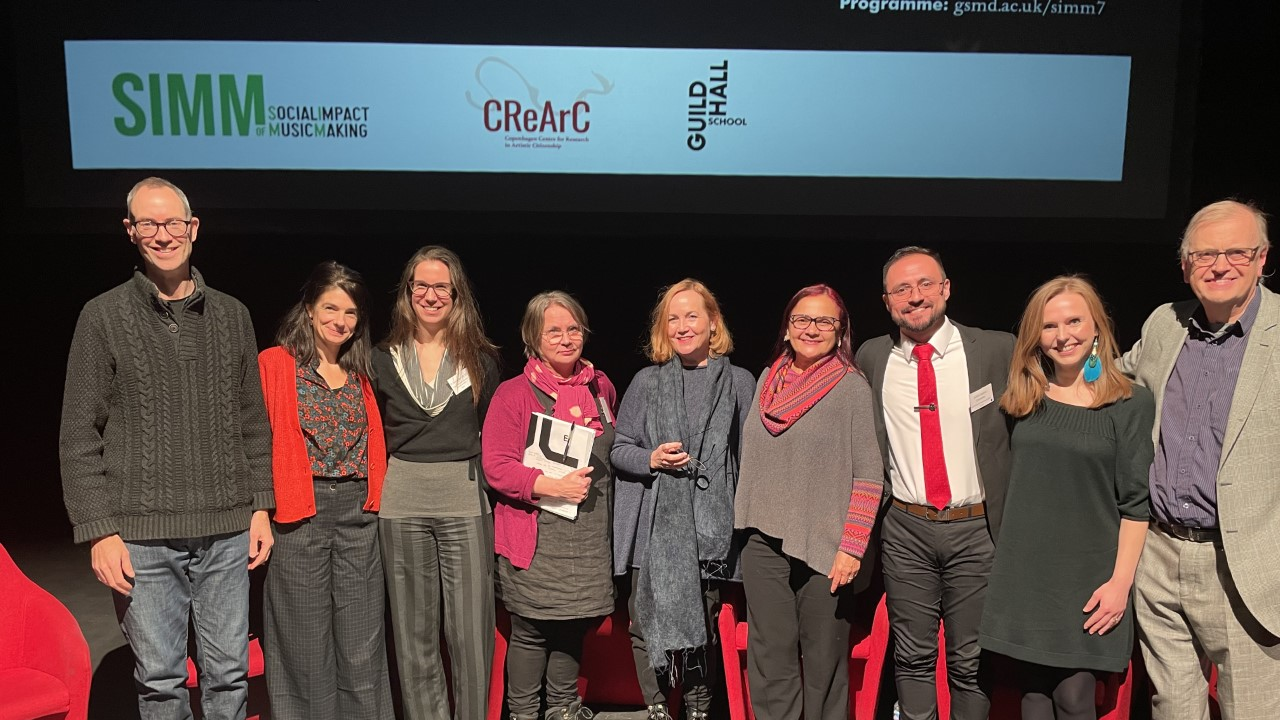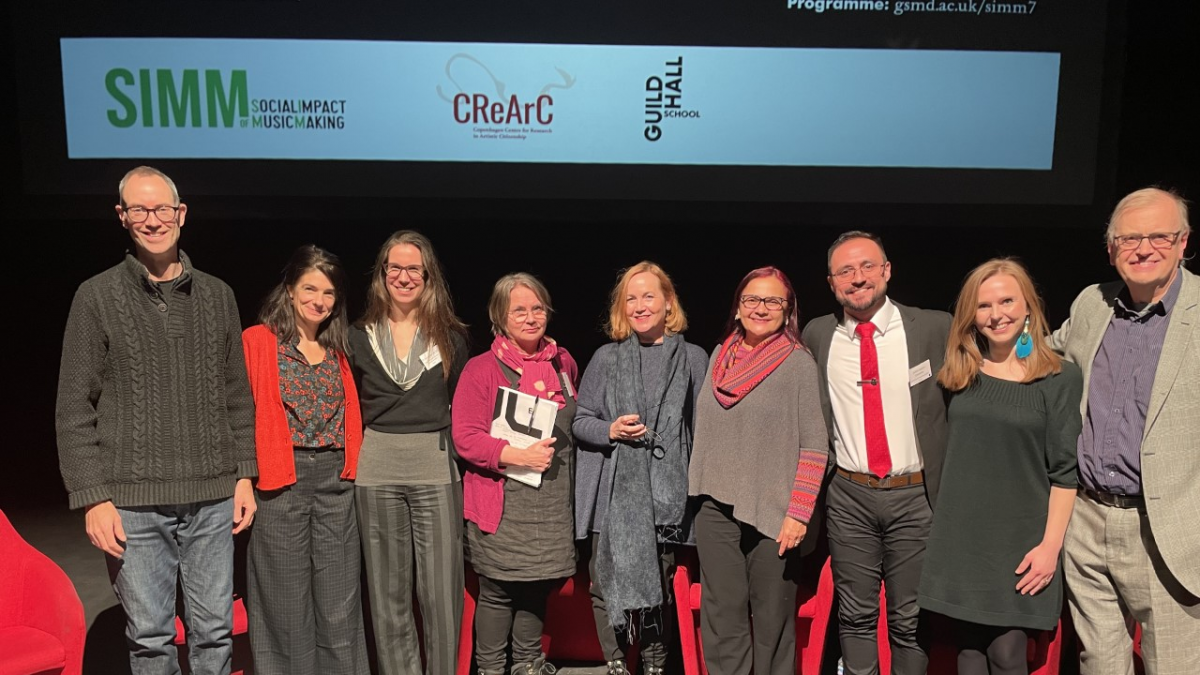Music for social impact: practitioners’ contexts, work, and beliefs
The research project aims to examine the growing number of participatory music-making activities being offered to marginilized groups.

Introduction
The project aims to examine the growing number of participatory music-making activities being offered to groups defined by factors such as their social needs or deprivation. These Socially Impactful Music Making (SIMM) activities focus on marginalized or excluded groups such as in regions of poverty, conflict or social disruption, mental or physical impairment, people in prison or those who are homeless, and assist participants to perform music for its intrinsic value, as well as helping them to achieve defined social goals such as inclusion, empowerment, community building or activism.
The project wants to provide an in-depth analysis of the field from the perspective of the practitioners who deliver the work, by analysing how their backgrounds, training, and beliefs affect the way they carry out SIMM activity and assess and improve its effectiveness.
Research is being conducted across four countries: Belgium, Finland, the UK and Columbia.

Contact information
-
Heidi Westerlund
- Professor, music education, doctoral education, MuTri Doctoral School, Sibelius Academy
- +358505015622
- heidi.westerlund@uniarts.fi
Project name
Music for social impact: practitioners' contexts, work, and beliefs
Time
01/2020-03/2022
Funder
The Arts and Humanities Research Council (AHRC), Britain
Lead organisation
The Principal investigator of the project is Professor John Sloboda from Guildhall School of Music and Drama in Britain.
Find out more
Introduction
The project aims to examine the growing number of participatory music-making activities being offered to groups defined by factors such as their social needs or deprivation. These Socially Impactful Music Making (SIMM) activities focus on marginalized or excluded groups such as in regions of poverty, conflict or social disruption, mental or physical impairment, people in prison or those who are homeless, and assist participants to perform music for its intrinsic value, as well as helping them to achieve defined social goals such as inclusion, empowerment, community building or activism.
The project wants to provide an in-depth analysis of the field from the perspective of the practitioners who deliver the work, by analysing how their backgrounds, training, and beliefs affect the way they carry out SIMM activity and assess and improve its effectiveness.
Research is being conducted across four countries: Belgium, Finland, the UK and Columbia.

Contact information
-
Heidi Westerlund
- Professor, music education, doctoral education, MuTri Doctoral School, Sibelius Academy
- +358505015622
- heidi.westerlund@uniarts.fi